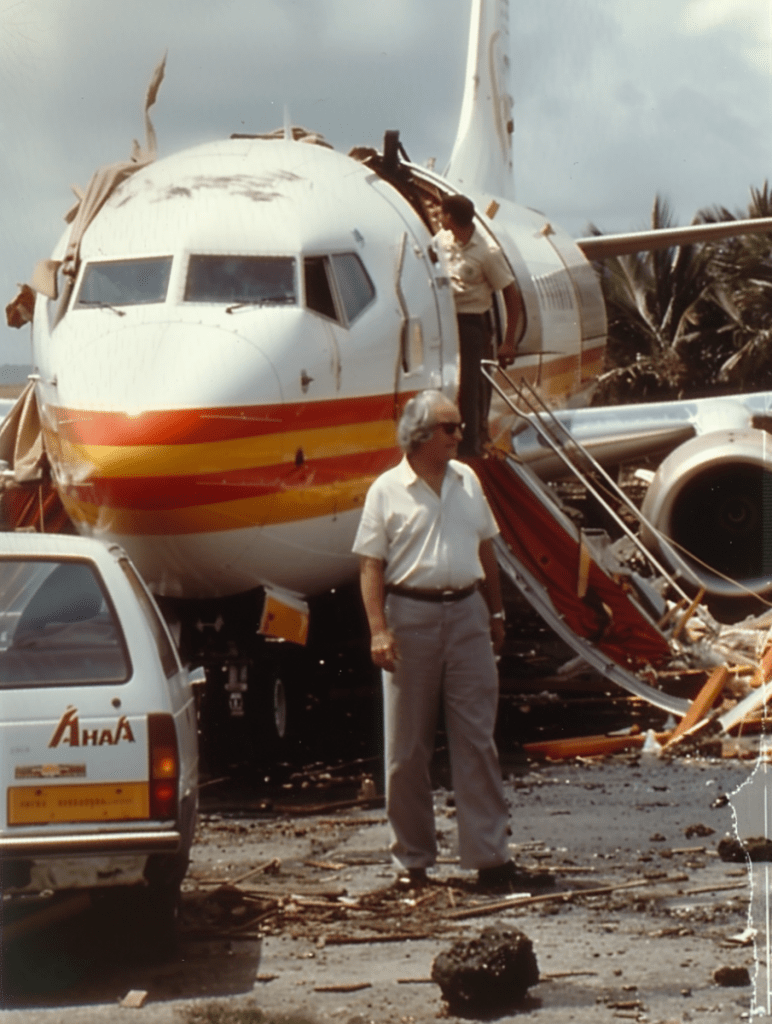On This Day, April 28, 1988, Aloha Airlines Flight 243 experienced a terrifying incident that became etched in aviation history. What began as a routine 35-minute flight from Hilo to Honolulu turned into a horrific ordeal when part of the Boeing 737’s fuselage violently tore open mid-air.
About 24 minutes into the flight at an altitude of 24,000 feet, an explosive decompression ripped an 18-foot section off the upper fuselage just behind the cockpit. The failing structural integrity caused one flight attendant to be sucked out of the plane while passengers frantically held on for their lives.
In the cockpit, pilots Robert Schornstheimer and Mimi Tompkins faced the harrowing task of landing the severely damaged aircraft. With tremendous skill, they managed an emergency descent and landing at Kahului Airport on Maui despite the plane’s crippled state.
Miraculously, there were only 65 injuries of the 94 people aboard, with one flight attendant’s tragic death. Subsequent investigations revealed that metal fatigue and improper maintenance led to the structural failure of the near 20-year-old aircraft.
The Aloha 243 incident exposed a wider issue of aging airliners susceptible to gradual metal fatigue and corrosion. It prompted sweeping safety changes and more stringent inspection protocols for older aircraft across the industry worldwide.
